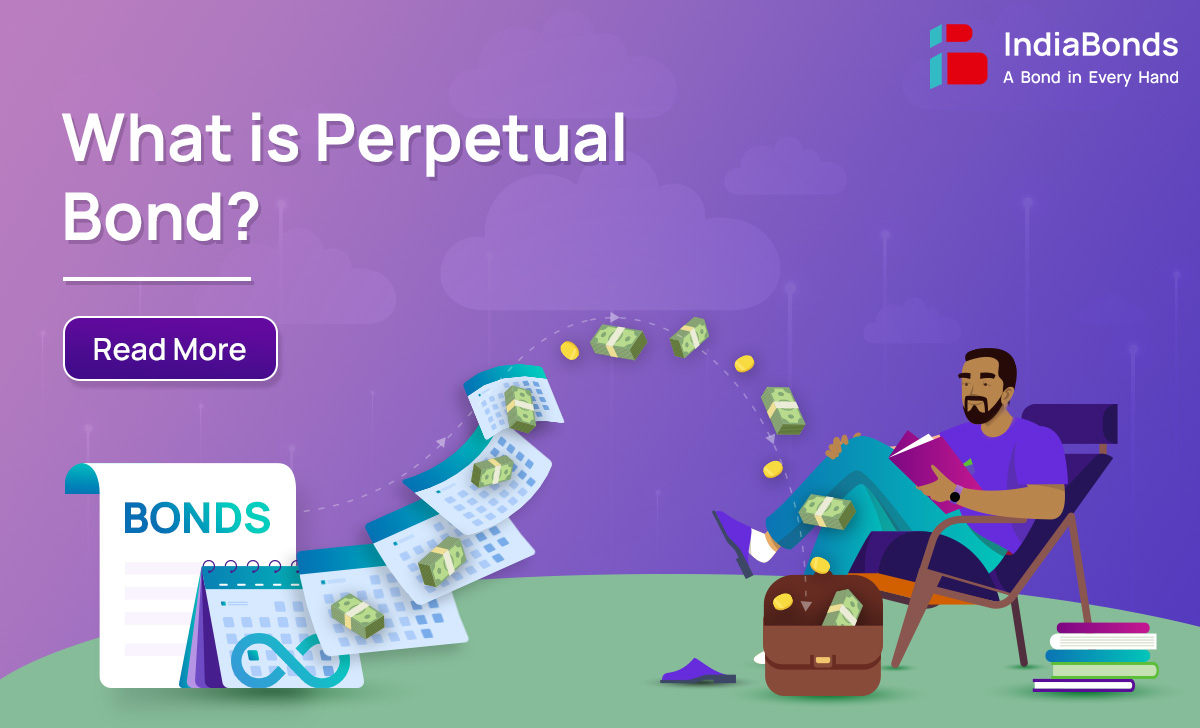What Is A Perpetual Bond

Introduction
Bonds can be issued by corporations or governments to serve as a source of financing. Those that buy bonds are effectively providing the issuers with a loan. In this case, the issuer promises the bond purchaser periodic interest payments in exchange for the loans.
A bond’s maturity date is when your investment will be fully repaid. At that point, you will have received full repayment of your initial investment, and no more interest will be charged. However, perpetual bonds do not mature.
Read on to discover what perpetual bonds are, how they function, and the benefits and risks of purchasing them.
What are Perpetual Bonds?
A perpetual bond is a fixed-income asset with no maturity date. These bonds are often seen as equity rather than debt. One major problem with these types of bonds is that they are not redeemable. There is no scheduled date for the redemption of the principal, but the holder will receive regular interest payments. Bond coupons are perpetual, meaning they will be paid indefinitely.
The market for bonds that last forever is relatively modest. This is because only a small number of corporates/banks can convince bondholders to put their money into a bond where they will never get their initial investment back.
The issuer can call back these bonds. This means that unless the call option is exercised, these bonds cannot be redeemed by the issuer. The call option dates typically occur every 5–10 years after the bond was issued. However perpetual bonds issued can be traded, thus investors can liquidate their holdings by selling their bonds on exchanges.




How Does a Perpetual Bond Work?
Similar to bonds that mature at a specific date, perpetual bonds can continue to accrue interest payments indefinitely. Perpetual bonds do not have a set maturity date but can be redeemed at any time by the issuer thanks to a “call” provision. Financial firms or governments issue these bonds to raise money at predetermined interest rates, called coupons.
Bondholders anticipate a steady stream of interest payments from the issuer indefinitely, barring any redemption actions on the issuer’s part. The principal is not due from the issuer either.
To begin, an investor must acquire a bond issued by a government entity, private company, or other entity. Following this, the issuer promises to make regular fixed payments to the investors, reimbursing them for their initial investments and accrued interest. Bonds are issued with predetermined terms, which might change from one bond to the next, down to the interest rate.
Credit risk still exists for investors in perpetual bonds, even though they are a relatively safe investment option. If market interest rates rise above bond coupon rates, investors risk seeing a decline in the value of their holdings. Depending on current market conditions, certain issuers may choose to compensate for this risk by offering longer fixed coupon periods.
The Yield on Perpetual Bond
For those interested in knowing what kind of yield return they can expect from a perpetual bond investment, the formula is as follows:
To calculate the yield (interest rate) on a perpetual bond at any given period, divide the bond’s present value by the annual coupon payments received, then multiply by 100.
For the sake of explanation, assume that you have purchased a Rs. 1,000 perpetual bond at a discount price of Rs. 750. Annual coupon payments will total Rs. 60.
Current Yield = (60/750) * 100
= 0.08 * 100
= 8%
The current yield of a bond is 8%
Who Should Invest in Perpetual Bonds?
- Investors, including individuals, banks, corporations, and mutual funds, purchase perpetual bonds.
- Retirees looking to guarantee a steady source of income for the rest of their lives often purchase perpetual bonds. These bonds provide a higher yield because they are issued mainly through banks or corporates.
- Yields may be enticing, but investors should also consider the tax implications. What’s left, after deductions, is the interest earned.
- With perpetual bonds, investors don’t have to worry about replacing their existing bond portfolio when existing bonds mature.
- Investors face credit risk and interest rate risk. Investment value is threatened if interest rates climb above the permanent coupon rate. To spread out the risk, the issuer may include a step-up feature that raises the coupon rate according to a predetermined schedule.
- Economists have debated whether or not perpetual bonds are a good way for cash-strapped governments to raise money. However, most classical economists disagree that it is a good fiscal policy for a government to enter into a contractual commitment to make payments to anyone, in perpetuity, on debt that the government does not have to repay.
- The purchase decision of a perpetual bond should be made solely based on the investor’s risk tolerance and long-term financial goals. This allows them to make a more educated choice regarding their financial commitment.
Pros and Cons of Perpetual Bonds
Pros:
- Perpetual bonds, like other bond kinds, are attractive to investors because they provide a reliable fixed-income source. When a bond is issued, its terms, including the interest rate, are already set.
- Unlimited coupon payments Perpetual bonds, unlike conventional bonds, do not expire and can theoretically pay interest to investors indefinitely.
- Although there is always the possibility of default and fluctuating interest rates, the danger of investing in perpetual bonds is lower than the risk of investing in equities. If a company declares bankruptcy, the claims of the holders of perpetual bonds will be paid before those of the shareholders.
Cons:
- There is a penalty associated with purchasing perpetual bonds, known as the “opportunity cost,” because other investment options can yield a higher return on investment.
- Perpetual bonds are often callable, meaning the issuer can request the bond’s redemption after a specified period has passed.
- Investing in perpetual bonds exposes you to inflation risk or the possibility that your principal and interest payments won’t grow fast enough to keep pace with inflation. It may limit your purchasing power.
Conclusion
If you see perpetual bonds as a viable investment source, you have plenty of options on the Indian market. Perpetual bonds allow investors to make money with minimal risk. It’s a smart move to include them in any investment portfolio. The ability of cash-strapped governments to raise funds through the issuance of perpetual bonds is lauded by some economists as an advantage of perpetual bonds; yet, other economists are skeptical of the rationality of issuing debt that is not anticipated to be repaid.
FAQs
1. Are perpetual bonds subject to interest rate fluctuations?
A perpetual bond is very susceptible to interest rate changes.
2. What transpires in the case of a perpetual bond call?
Most perpetual bonds come with a call feature, which enables the issuer to redeem the bond at a predetermined price and date under the bond’s call schedule.
3. What are tax implications on perpetual bonds?
An investor’s annual coupon on perpetual bonds is added to their other income and taxed at their normal marginal rate under the Income Tax Act. On the other hand, investors are subject to taxation if they realise a long-term capital gain (after holding the bond for at least a year) when selling it on the secondary market.
4. How does one get out of a perpetual bond, i.e., a bond that pays interest forever?
If there is a liquid secondary market for the perpetual securities you own, it is the only way out of your investment unless the call option is exercised by the issuer.
5. Who can issue perpetual bonds?
Governments, major corporations, and financial institutions often issue perpetual bonds. Financial institutions issue these bonds to fulfil the Tier 1 Capital Requirement.
Disclaimer: Investments in debt securities/ municipal debt securities/ securitised debt instruments are subject to risks including delay and/ or default in payment. Read all the offer related documents carefully.
















































